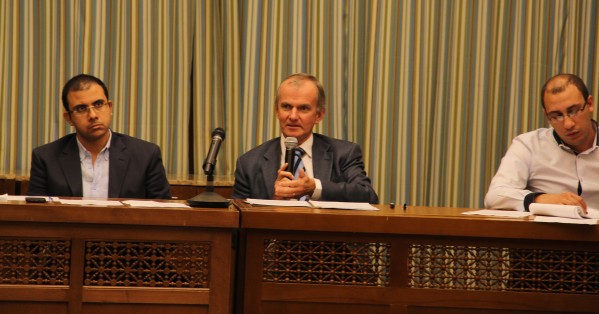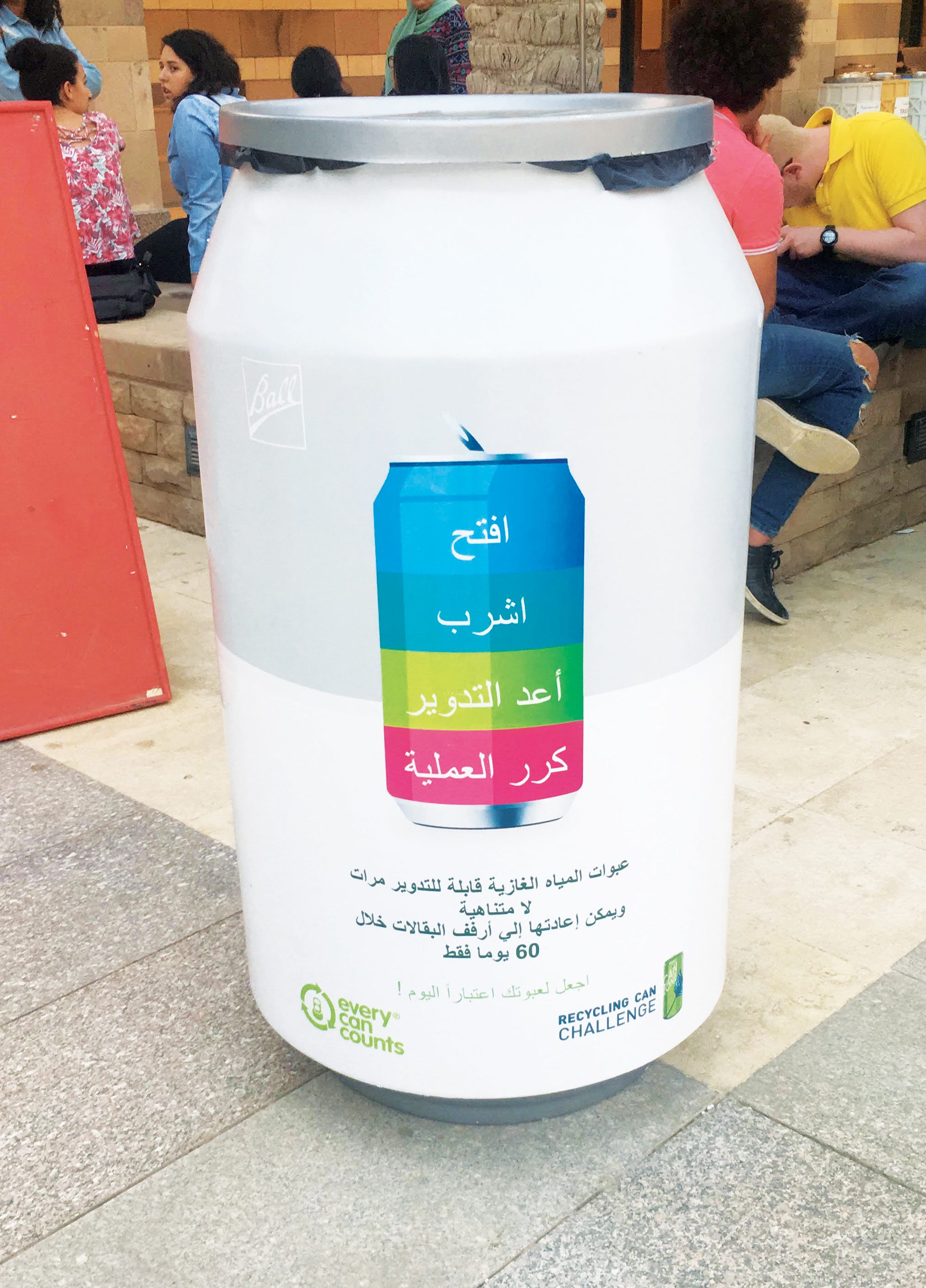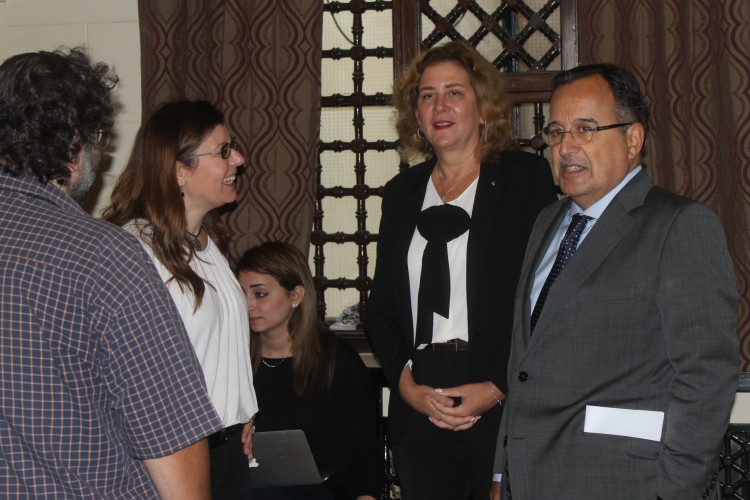Despite student grievances, MacDougall says bus service has improved
BY NADINE AWADALLA AND NOURHAN AHMED ELBERY
![MacDougall says the current bus service has improved compared to previous years [Awadalla]](http://www.auccaravan.com/wp-content/uploads/2014/10/MacDougall-e1412342119585.jpg)
On October 2, the university administration sent an email updating the AUC community about its efforts to improve transportation operations and facilities.
The email, in part, said: “Thanks to valuable feedback from students, faculty, and staff, we are aware that some of our bus providers may be having difficulty meeting AUC standards. We are implementing clear measures to remedy these situations. These measures include immediate attention to matters of bus cleanliness, driver performance and bus availability as well as consideration of changes to routes and schedules beyond the current semester.
The email came following two weeks of often heated debates regarding the standard of bus services to and from campus, and a need to improve the complaint and grievance process.
Three days earlier, Brian MacDougall, Executive Vice-President for Administration and Finance, said that this year’s bus service was “a whole lot better” than a year ago, but told students to stop using the service if they found it to be unsatisfactory during a heated advisory meeting with the transportation committee.
MacDougall’s comments on Tuesday came amid what appeared to be an impasse between students and administration following comments from Yasmin Hashim, a political science senior, who expressed frustration that the changes to improve the bus service over the past year had been insufficient.
Tuesday’s meeting brought together Student Union (SU) representatives, faculty, staff and the transportation committee met in a bid to find solutions to recurring general and provider-specific problems with the service.
Several of the participants said they were concerned about a number of issues including tardiness, lack of cleanliness, frequent bus breakdowns and no Wi-Fi since the semester began.
“I think I speak on behalf of all the students, the staff, some faculty members … asking for concrete solutions today,” Hashim said.
The administration, in turn, proposed several solutions including penalizing the vendors, adjusting pickup schedules, and providing backup busses through a third party. Different short and long-term deadlines would be applied to meet these goals.
“The issues around the bus have been challenging for the university since 2008,” said MacDougall.
“The transportation committee was formed at that time, various changes have been made, I would say that the bus service of 2014 is a whole lot better than it was as we entered 2013,” he told members of the community.
The students, however, felt that this was unsatisfactory, saying that some of the solutions are redundant because they had been used with Family Transport, AUC’s previous vendor, to no avail.
MacDougall said that the comparison was unfair because of the change in service providers.
According to the administration, the decision to get end the contract with Family Transport was unanimous.
Meanwhile, student government speaker Amr Seifeldin provided a supplemental list of six solutions agreed to by the Senate and the SU.
The demands included sanctioning and penalizing vendors that leave students “in the streets”, formally emailing the AUC community acknowledging existing problems with the service, and launching investigations when warranted.
“We’re now making it clear that these are short term [solutions], and these do not require any time. These things can be done tomorrow, or even after this meeting,” said Seifeldin.
Seifeldin also requested that the Service Level Agreement be amended to ensure students can get directly refunded when facing bus issues; he also said AUC needed to be transparent about its contracts with bus vendors.
The full list of demands was later sent to MacDougall through email.



